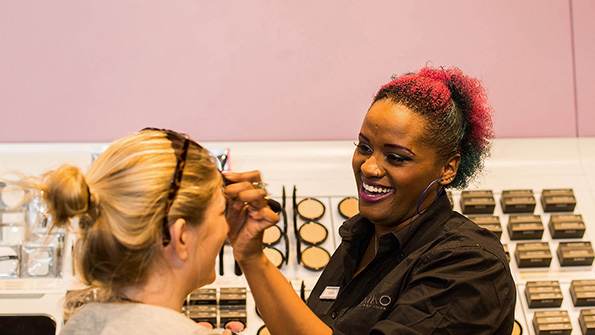Franchising, retail, business

05/12/2015
Kiko is applying fast-fashion principles to the cosmetics business
COPYING can be a form of innovation when a company pinches ideas from a different industry and applies them to its own. This is what Kiko, a Milanese cosmetics company, is doing.
It is adopting the principles already used to great success by “fast-fashion” clothing chains such as Zara and H&M: constantly changing the line-up of products in its stores to encourage customers to visit frequently; responding rapidly to the latest consumer trends; and keeping prices low. Its success is encouraging some of the industry’s bigger brands to rethink their distribution model.
Worldwide, the cosmetics market (including cleansers and skin creams as well as make-up) grew by 3.6% to €181 billion ($240 billion) in 2014; it is expected to double over the next 10-15 years, according to EY, a consulting firm. Thus far, the industry has essentially been divided in two. More expensive brands tend to be sold in specialist beauty-store chains or in concessions in department stores, where shoppers can try them and get beauty tips before buying. Cheaper brands are sold in chemists’ shops or supermarkets, with little customer service. Kiko’s chain of own-label stores offers the best of both worlds: cheap prices plus makeover advice.
Kiko’s revenues have risen to €432m since it was founded in 1997 by Percassi, an Italian retail group. According to Kantar Worldpanel, a research firm, French 15-24-year-olds now buy as much from Kiko, in volume terms, as they do from Sephora, a cosmetics multi-brand retailer with revenues said to be around €4.6 billion which is part of LVMH, a luxury-goods giant.
Much of Kiko’s success draws on Percassi’s experience in fashion retail. Antonio Percassi, the group’s boss, who also owns several other brands, a restaurant and a football club, began working with Benetton, an Italian clothing chain, in the 1970s to develop its shops around the world. In 2001 he entered a joint venture with Inditex, the Spanish group which owns Zara, to bring its brands to Italy. This year Percassi partnered with Victoria’s Secret, an American underwear firm which has driven sales of lingerie out of department stores and into its smaller shops, to open its first Italian outlets.
Kiko operates all the outlets where its products are sold, which all have the same modern design. This makes it easier to provide a consistent level of service, says Mr Percassi. Being vertically integrated also makes it easier to ensure the shops remain well-stocked. The chain has two distribution centres: one in Bergamo, Italy, for European outlets, and one opened recently in New Jersey for North America.
Kiko’s growth seems to be encouraging other firms in the cosmetics and beauty business to reconsider their business models. Higher-end brands like Benefit (part of LVMH) and L’Occitane (which is mostly in the skincare end of the business) are putting more emphasis on their own outlets and less on selling through other retailers. Nocibé, a big French retailer, last year began testing stores that stock mainly its own cosmetics brand, which it developed two years earlier. L’Oréal, the world’s largest cosmetics group, is opening “dermacentres”, outlets which sell its skincare brands, such as Vichy and La Roche Posay. It is also developing the retail network of Nyx, a Los Angeles-based cosmetics firm with annual sales of $200m, which it bought last year.
So far most customers of Kiko, as at other cosmetics firms, are women. But men who moisturise are becoming less rare, and in South Korea there is a brisk trade in masculine make-up (see article). Kiko’s parent company has taken a cautious step towards this market, opening a chain called Womo (as in uomo, “man” in Italian), which sells men’s clothes and toiletries. As male grooming continues to evolve into male preening, it would be no problem for these stores to slip in a few discreet lines of cosmetics, to spare men’s blushes as they try their first dab of blusher.
Fonte:http://www.economist.com/news/business/21679458-kiko-applying-fast-fashion-principles-cosmetics-business-shake-up-make-up?frsc=dg%7Cc